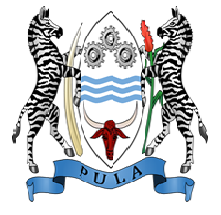Formerly the British protectorate of Bechuanaland, Botswana adopted its new name at independence in 1966. More than four decades of uninterrupted civilian leadership, progressive social policies, and significant capital investment have created one of the most stable economies in Africa. The ruling Botswana Democratic Party has won every election since independence; President Ian KHAMA was reelected for a second term in 2014. Mineral extraction, principally diamond mining, dominates economic activity, though tourism is a growing sector due to the country's conservation practices and extensive nature preserves. Botswana has one of the world's highest known rates of HIV/AIDS infection, but also one of Africa's most progressive and comprehensive programs for dealing with the disease.
Botswana is a parliamentary republic.
Source: CIA World Factbook
Members:
Resources
Displaying 16 - 20 of 57Electricity Supply Act (Chapter 73:01).
This Act provides rules for the generation and supply of electricity and related matters. Generation or supply of electricity requires a licence issued by the Minister. The President may acquire, in accordance with the Acquisition of Property Act, so much land or rights over land, as he or she may consider necessary for any purpose associated with the generation or supply of electricity by a licensee. Acquisition shall be preferentially through agreement with the owner. The Act also makes provision for servitudes and access to land.
Botswana Power Corporation Act (Chapter 74:01).
This Act establishes the Botswana Power Corporation, defines its functions and powers and provides with respect to the organization and operations of the Corporation.The Corporation shall be responsible for the generation, transmission, supply and distribution of electricity in areas approved by the Minister in terms of legislation relating to the supply of electricity. The Act stipulates that the functions and operations of the Corporation shall be deemed to be public purposes in accordance with legislation on compulsory acquisition of land.
Monuments and Relics Act (Chapter 59:03).
This Act makes provision with respect to the protection and conservation of national monuments and protected heritage areas.The Act provides for the appointment of the Commissioner of Monuments and Relics and defines powers of the Minister for purposes of protection and conservation of national monuments and protected heritage areas. The Minister may, after consultation with the Commissioner, enter into a written agreement with the owner of any national monument, recent artefact, recent historic monument or protected heritage area, for its protection or preservation.
Mineral Rights in Tribal Territories Act (Chapter 66:02).
This Act transfers mining rights from specified tribes and tribal authorities to the State of Botswana in the manner and at the conditions as are specified in agreements for this purpose. These agreements are attached to the Act in the Schedules and shall have the force of law.
Rent Control Act (Chapter 43:09).
This Act makes provision for the control of rent in such areas of Botswana and to such premises in such areas as the Minister may from time to time, by Order published in the Gazette, specify. The Act establishes a Rent Control Tribunal and provides with respect to jurisdiction and proceedings of the Tribunal. Landlords and tenants of premises to which this Act applies may apply to the Tribunal for the assessment of rent. Appeal against decisions of the Tribunal may be had with the High Court.


